No Products in the Cart
Zulekha Nishad, based in India, is a skilled content specialist, copy editor, and creative content writer with a Master's degree in English Language and Literature. Read more
Last Updated March 3, 2025
In our fast-paced world filled with endless tasks and constant demands, one vital aspect often overlooked is sleep. However, its significance cannot be overstated. Sleep is important for our overall well-being, serving as a cornerstone that supports our physical, mental, and emotional health. It's during sleep that our bodies heal, our minds recharge, and we find peace in the quiet of the night.
Factors such as stress, screen time, and overwhelming responsibilities can make falling asleep seem like an impossible feat. This has prompted a search for solutions, leading some to explore the world of sleep aids. Among these, sleep drinks have emerged as a promising remedy, offering hope for those seeking a restful slumber. In this blog, we'll discuss about 10 sleep drinks and their health benefits and effectiveness in promoting a good night's sleep. Keep reading!
Key Takeaways:
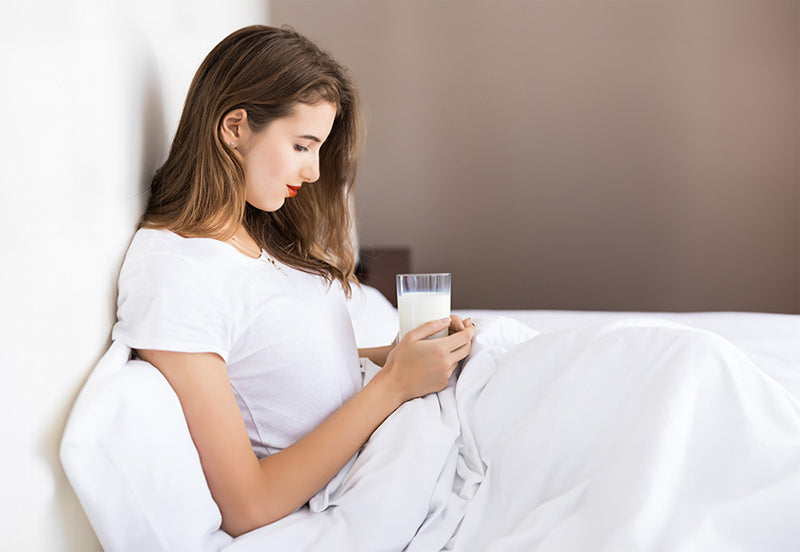
If the thought of bedtime makes your brain start solving the world's problems instead of winding down, just relax and try one of these amazing drinks!
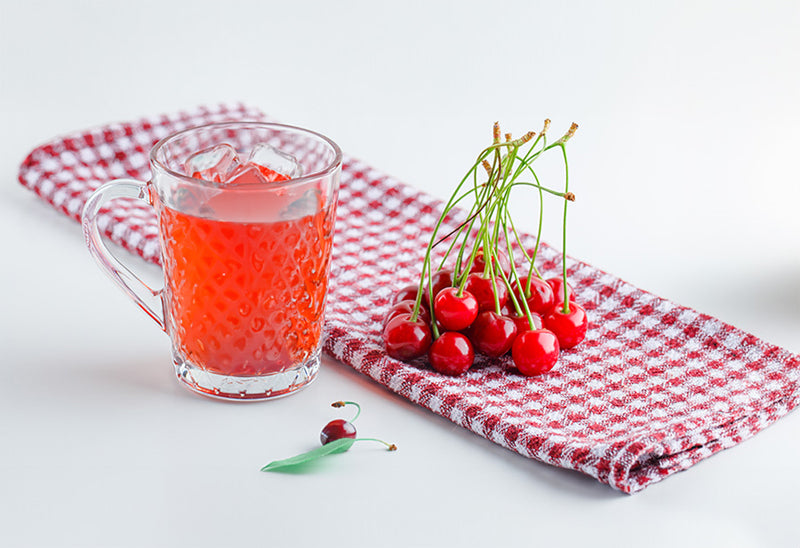
Studies indicate that consuming tart cherry juice can lead to better and longer sleep due to its content of tryptophan and melatonin.
Tryptophan is an amino acid that helps the body produce melatonin, which is a sleep hormone that is secreted at certain times of the day to help the body transition to sleep.
Tart cherries contain about 9 milligrams of tryptophan per 100 grams, and the daily intake of tryptophan should be around 250 to 425 milligrams.
Drinking tart cherry juice in the evening, after a meal of sleep-supporting foods, can be most effective for sleep.
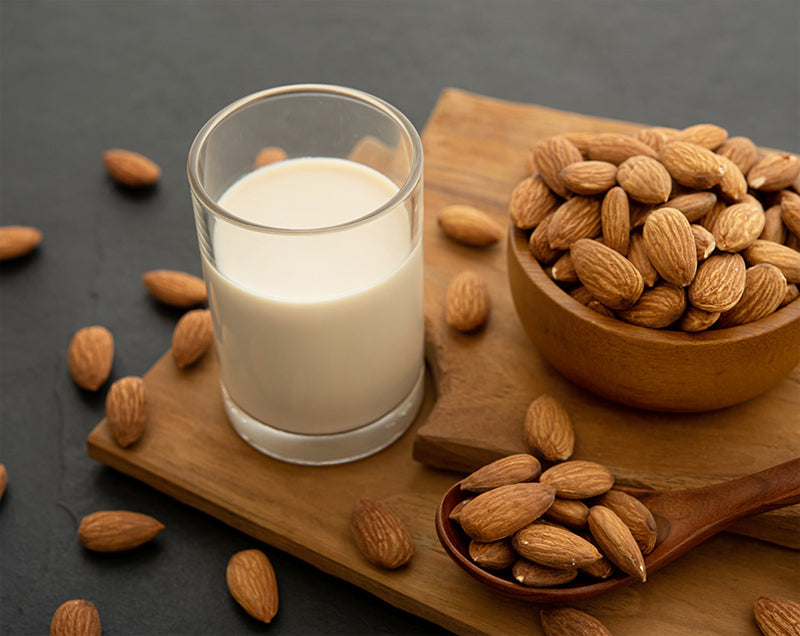
Almond milk is a plant-based milk that is creamy, nutty, and packed with nutrients.
According to research, almonds promote sleep quality and contain sleep-inducing hormones and minerals like melatonin, tryptophan, and magnesium.
One cup of almond milk contains around 17 mg of magnesium. Studies show that magnesium has the potential to treat insomnia, especially in the elderly.
Almond milk is widely available in all local grocery stores. However, thickeners, preservatives, and flavorings are usually added to improve flavor, texture, and shelf life in store-bought almond milk. So, we highly recommend making it yourself. The process is pretty simple.
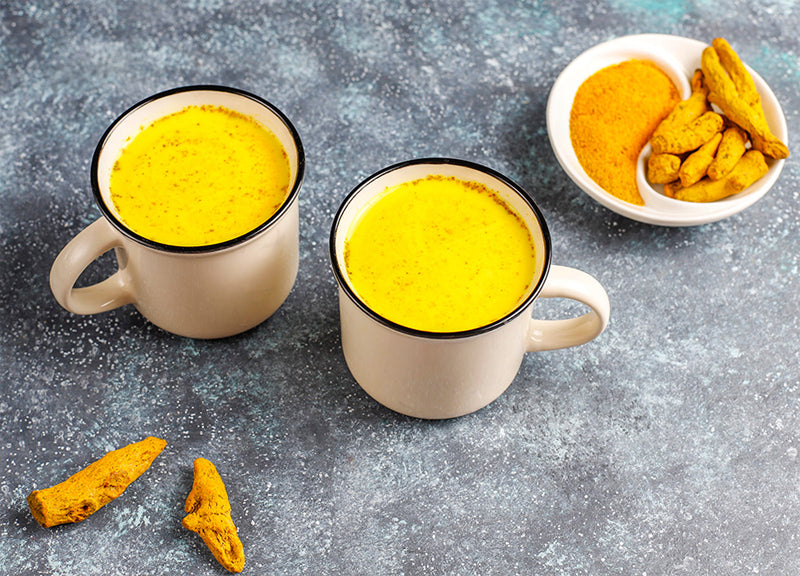
Golden milk, also known as turmeric milk, is a healthy and therapeutic drink containing cow's milk and curcumin, a bioactive substance that exhibits anti-inflammatory properties.
Studies conducted on mice have revealed that turmeric has the potential to help against oxidative damage and sleep deprivation . You can include golden milk in your bedtime routine to help you relax, uplift your mood, alleviate depression, and possibly reduce your anxiety levels (as observed in mice).
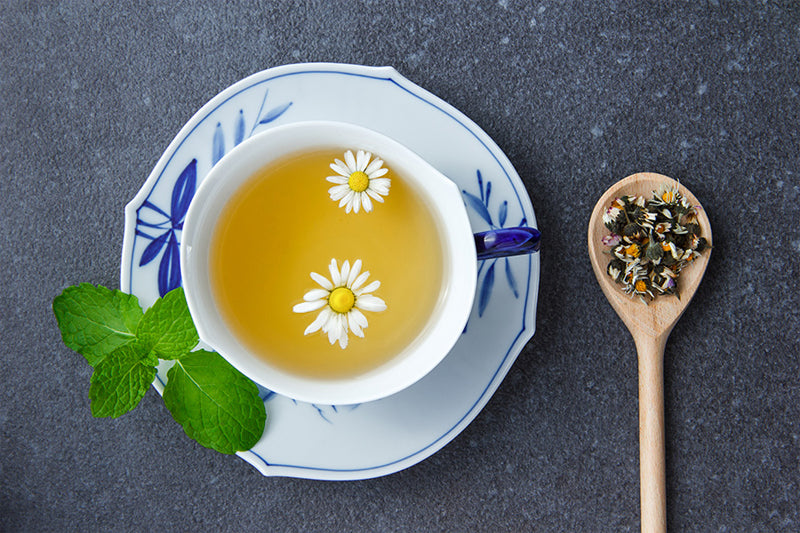
Chamomile is an herb that belongs to the Asteraceae family. It has multiple health benefits, such as relieving cold symptoms, easing stomach-related problems, improving skin health, and more.
Research says that drinking chamomile tea improves sleep quality. Chamomile contains apigenin, an antioxidant that binds to certain receptors in the brain, promoting sleepiness. It also contains compounds like bisabolol and chamazulene, which have calming effects.
A study on 60 older adults hospitalized in nursing homes found that taking 400 mg of chamomile extract for 28 consecutive days improved sleep quality.

Valerian tea is a bedtime herbal tea which is made from the roots of the valerian plant. It contains compounds like valerenic acid and isovaleric acid, which are believed to have sedative effects.
Some studies suggest that consuming valerian tea may help improve sleep quality and reduce the time it takes to fall asleep, although results are mixed. It's often recommended for individuals with mild sleep disturbances.
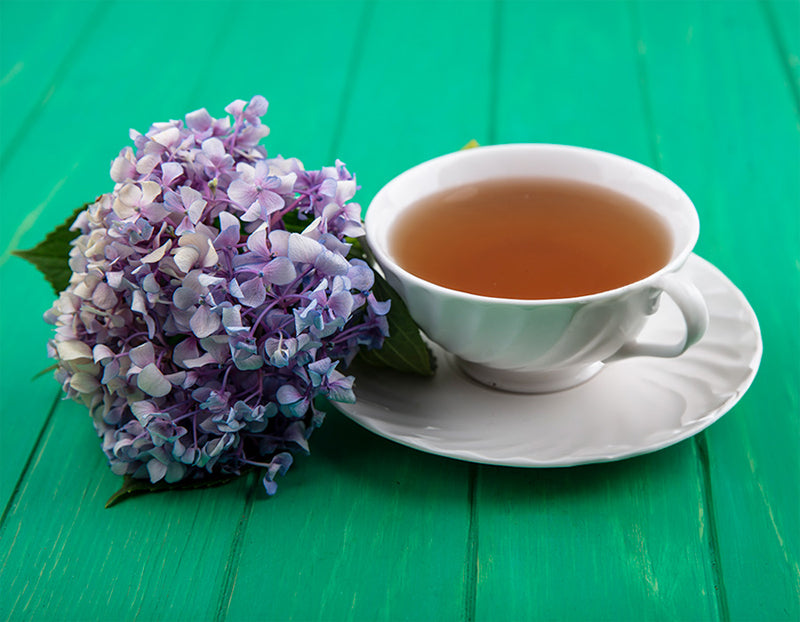
Lavender tea is made by steeping the purple buds of the Lavandula angustifolia plant in hot water. It contains aromatic compounds like linalool and linalyl acetate, which are believed to possess several benefits, such as reducing stress and anxiety, improving sleep quality, and enhancing skin health.
A study on the effects of lavender tea on sleep-disturbed postnatal women showed that it was effective in improving mood and sleep problems. Another study conducted in 2022 revealed that lavender tea improved sleep quality in elderly patients.
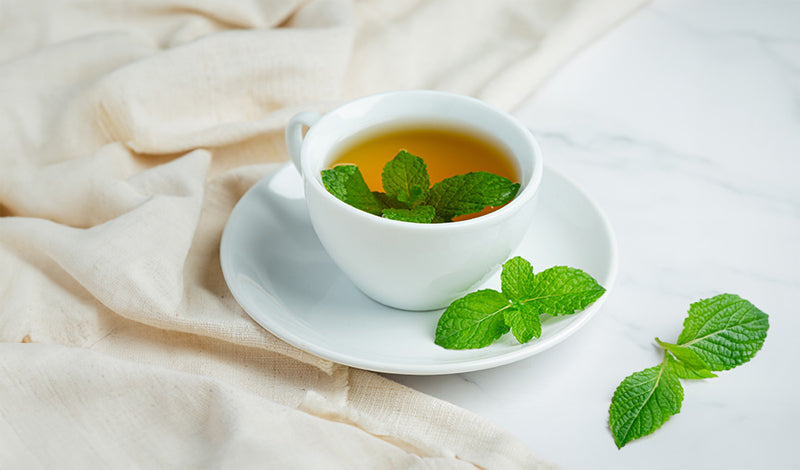
Peppermint tea is a healthy drink that is naturally caffeine-free and made from the leaves of the peppermint plant. It contains menthol, which has a cooling and soothing effect.
Research has shown that peppermint tea has potent antiviral, antimicrobial, and even anti-allergenic properties, making it a must-have for anyone looking to boost their immune system. Peppermint tea is also known to provide relief from gastrointestinal (GI) conditions such as indigestion and irritable bowel syndrome.
While peppermint tea may not directly promote sleep, its ability to help with digestion can prevent discomfort that may disrupt sleep, ensuring a calm and restful night's sleep. Peppermint also acts as a muscle relaxant and may help you relax before bedtime.
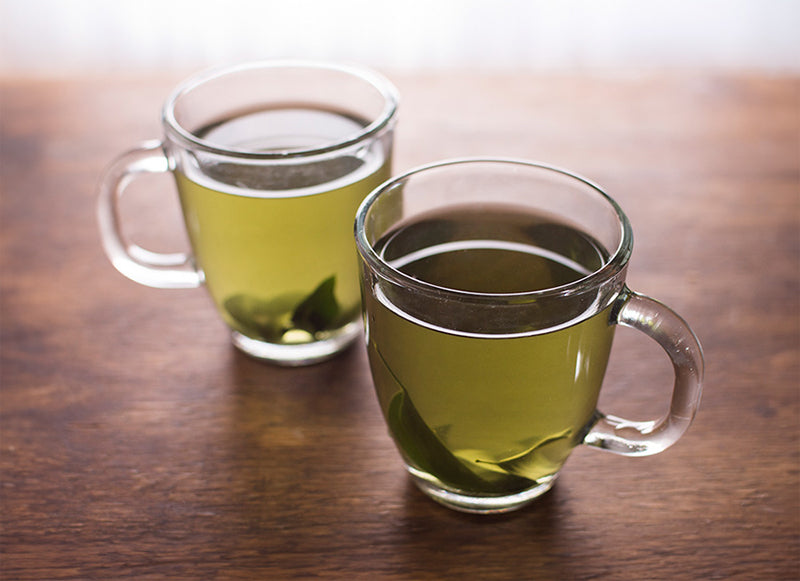
Certain compounds within decaffeinated green tea might aid in sleep by influencing the GABA system in the brain.
Research shows that consuming low-caffeine green tea before bed could potentially enhance sleep quality compared to regular green tea. However, the precise mechanism by which green tea impacts sleep remains uncertain.
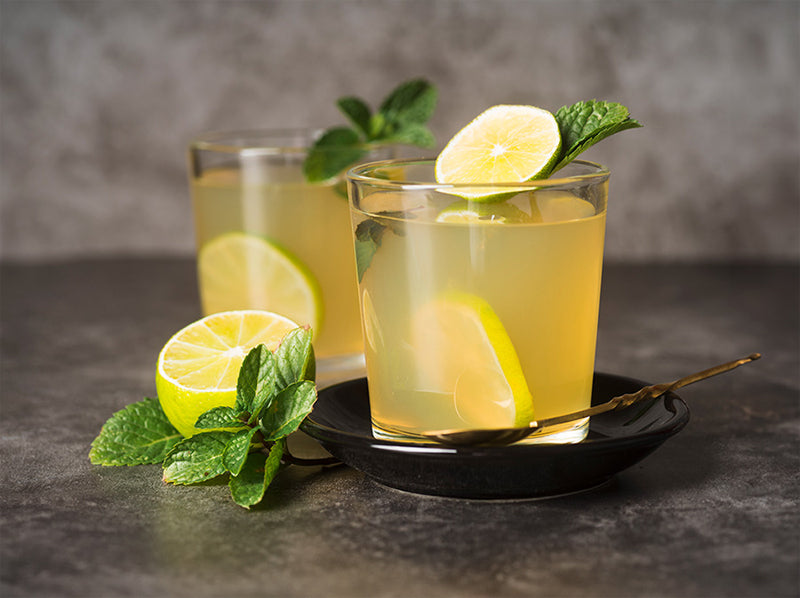
Lemon balm tea is made from the dried leaves of the lemon balm plant, which contain compounds like rosmarinic acid and flavonoids with mild sedative effects.
A 2023 study suggests that lemon balm, when combined with other calming herbs like valerian root, has improved sleep quality in 100 menopausal women compared to taking a placebo.
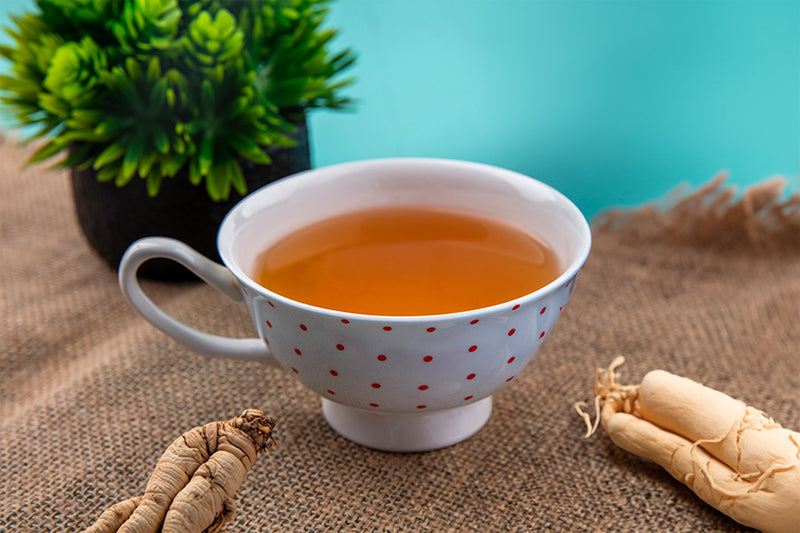
Ginseng tea is made from the root of the ginseng plant and contains ginsenosides, compounds that may help reduce stress and improve mood.
While research on ginseng's direct effects on sleep is limited, its adaptogenic properties may support the body's ability to cope with stress, potentially leading to better sleep. It's often recommended for individuals experiencing stress-related sleep disturbances.
Drinking certain beverages before bed can impact your sleep health. Here's a detailed look at three types of drinks that you should avoid before bedtime:
Consuming alcohol before bed may seem to help you relax and fall asleep faster initially, but it disrupts your sleep cycle once you're asleep. Alcohol interferes with your body's ability to enter into deep sleep stages, particularly REM (rapid eye movement) sleep, which is essential for cognitive function, memory consolidation, and overall restoration.
Alcohol can cause frequent awakenings throughout the night, leading to fragmented sleep and decreased sleep quality. Over time, habitual alcohol consumption before bed can contribute to chronic sleep issues, such as insomnia and sleep disorders.
Beverages high in sugar, such as soda, fruit juices, and sweetened teas, can cause a spike in blood sugar levels, followed by a rapid drop, which can disrupt your sleep cycle.
Even drinks labeled as "natural" or "healthy" may contain high amounts of added sugars, so it's essential to check the labels before consuming them close to bedtime.
Consuming caffeinated drinks, such as coffee, tea, energy drinks, or certain sodas, before bedtime blocks the action of adenosine, a neurotransmitter that promotes sleepiness, leading to increased alertness and arousal.
Even if you believe you have a high tolerance for caffeine, it's best to avoid it within several hours of bedtime to ensure optimal sleep.
Be mindful of hidden sources of caffeine, such as chocolate and some medications, as they can also disrupt your sleep patterns.
To ensure a peaceful night's sleep, you can incorporate calming and soothing drinks such as chamomile tea, tart cherry juice, almond milk, and more into your evening routine. However, it is important to note that everyone's body is different, and what works for one person may not work for another, so it's a good idea to consult a healthcare professional before making any significant changes to your diet or routine. By prioritizing relaxation and avoiding stimulating beverages like alcohol, sugary drinks, and caffeine, you can create an environment that promotes overall sleep quality, leading to a happier, healthier life.
The best time to drink before bed is generally about 1-2 hours before you plan to sleep. This gives your body enough time to process the fluids, so you don't wake up in the middle of the night to use the bathroom.
To fall asleep faster, try herbal teas and natural sleep aids like chamomile, warm milk, decaffeinated drinks, golden milk, or tart cherry juice. Avoid caffeine, sugary drinks, and alcohol before bed, as they can disrupt sleep.
Related blog posts:
1. Sleep Apps
2. Sleep Music
4. The Best Foods That Will Help You Sleep at Night
5. Top 10 Essential Oils for Better Sleep
Disclaimer: What is said in this article has been referenced from multiple sources and is intended only for educational and informational purposes. Please note that no content in this article is a substitute for professional advice from a qualified doctor or healthcare provider. Always consult an experienced doctor with any concerns you may have regarding a health condition or treatment, and never disregard any medical suggestions or delay in seeking treatment because of something you read here.
Notify me when available
We will send you a notification as soon as this product is available again.
We don't share your email with anybody


